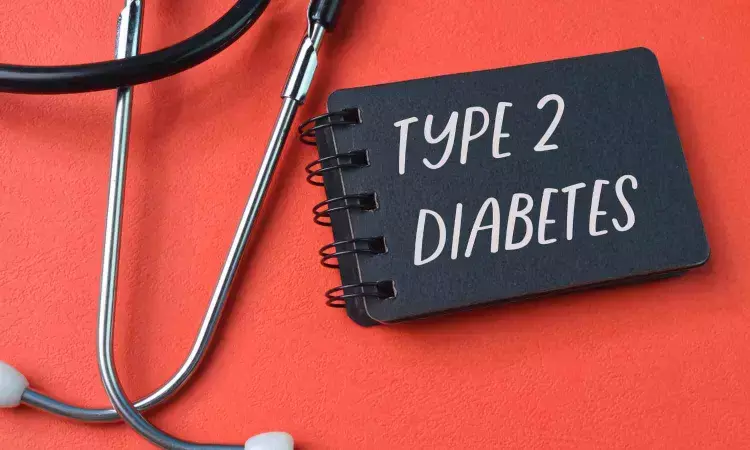- Home
- Medical news & Guidelines
- Anesthesiology
- Cardiology and CTVS
- Critical Care
- Dentistry
- Dermatology
- Diabetes and Endocrinology
- ENT
- Gastroenterology
- Medicine
- Nephrology
- Neurology
- Obstretics-Gynaecology
- Oncology
- Ophthalmology
- Orthopaedics
- Pediatrics-Neonatology
- Psychiatry
- Pulmonology
- Radiology
- Surgery
- Urology
- Laboratory Medicine
- Diet
- Nursing
- Paramedical
- Physiotherapy
- Health news
- Fact Check
- Bone Health Fact Check
- Brain Health Fact Check
- Cancer Related Fact Check
- Child Care Fact Check
- Dental and oral health fact check
- Diabetes and metabolic health fact check
- Diet and Nutrition Fact Check
- Eye and ENT Care Fact Check
- Fitness fact check
- Gut health fact check
- Heart health fact check
- Kidney health fact check
- Medical education fact check
- Men's health fact check
- Respiratory fact check
- Skin and hair care fact check
- Vaccine and Immunization fact check
- Women's health fact check
- AYUSH
- State News
- Andaman and Nicobar Islands
- Andhra Pradesh
- Arunachal Pradesh
- Assam
- Bihar
- Chandigarh
- Chattisgarh
- Dadra and Nagar Haveli
- Daman and Diu
- Delhi
- Goa
- Gujarat
- Haryana
- Himachal Pradesh
- Jammu & Kashmir
- Jharkhand
- Karnataka
- Kerala
- Ladakh
- Lakshadweep
- Madhya Pradesh
- Maharashtra
- Manipur
- Meghalaya
- Mizoram
- Nagaland
- Odisha
- Puducherry
- Punjab
- Rajasthan
- Sikkim
- Tamil Nadu
- Telangana
- Tripura
- Uttar Pradesh
- Uttrakhand
- West Bengal
- Medical Education
- Industry
Long-term sulfonylurea use tied to higher risk of low blood sugar unawareness in type 2 diabetes patients: Study

Sulfonylureas are a class of oral medications used to manage blood glucose levels in patients with type 2 diabetes. These drugs increase insulin production regardless of blood sugar levels. For this reason, the drugs can cause blood sugar to drop too low, leading to hypoglycemia. The goal of this study was to compare how prevalent impaired awareness of hypoglycemia was when patients with type 2 diabetes were treated with either insulin or sulfonylureas for both long and short-term periods.
Study Approach: Researchers collected data from a group of 898 participants with type 2 diabetes enrolled in pharmacies, clinics, and health bureaus of Tainan City, Taiwan. Participants were treated with insulin or sulfonylurea between August and November 2022. Researchers assessed the participants’ degree of impaired awareness of their hypoglycemia status, using the Chinese versions of the Clarke and Gold questionnaires.
Main Results:
• Up to 94.3% of participants, half male and half female and mostly aged 40-69, visited a clinician as an outpatient every 2-3 months for diabetes care. For participants who used the medication for less than a year, the prevalence of impaired awareness of hypoglycemia in sulfonylurea users was 47.8% (Gold) and 30.4% (Clarke). The prevalence increased to 70.7% (Gold) and 56.9% (Clarke) for users treated with sulfonylurea for more than five years.
• For insulin user participants who used the medication for less than a year, the prevalence of impaired hypoglycemia awareness was 57.3% (Gold) and 30.1% (Clarke). This decreased to 41% (Gold) and 28.2% (Clarke) for participants who used the medication for more than five years. Regular ambulatory care with tests, including blood glucose and retina exams, was associated with lower odds of impaired awareness of hypoglycemia in both sulfonylurea and insulin users.
Why It Matters: Using sulfonylureas long-term is associated with impaired awareness of low blood sugar in patients with type 2 diabetes. The longer the patient uses this medication, the higher the risk of hypoglycemia unawareness. Current guidelines recommend using newer classes of medications that offer a reduced risk of hypoglycemia to treat type 2 diabetes over sulfonylureas, which are commonly used due to their affordability.
Reference:
Hsiang-Ju Cheng, Siou-Huei Weng, Jia-Ling Wu, Shu-Tin Yeh, Hua-Fen Chen, Hermina Novida, Huang-Tz Ou and Chung-Yi Li, Long-Term Sulfonylurea Use and Impaired Awareness of Hypoglycemia Among Patients With Type 2 Diabetes in Taiwan, The Annals of Family Medicine, DOI: https://doi.org/10.1370/afm.3129.
Dr Kamal Kant Kohli-MBBS, DTCD- a chest specialist with more than 30 years of practice and a flair for writing clinical articles, Dr Kamal Kant Kohli joined Medical Dialogues as a Chief Editor of Medical News. Besides writing articles, as an editor, he proofreads and verifies all the medical content published on Medical Dialogues including those coming from journals, studies,medical conferences,guidelines etc. Email: drkohli@medicaldialogues.in. Contact no. 011-43720751


